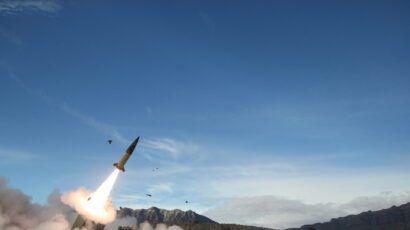Missile defense: The heart of the matter
By Tatiana Anichkina, October 10, 2014
Liviu Horovitz writes that second-tier US allies in Europe aren’t very concerned about the weapons capabilities of "new nuclear powers." What they fear is conflict between major powers, particularly Russia and the United States. Horovitz recognizes that missile defense can create tensions between great powers, but he concludes—partly on the reasoning that "missile defense may be only a symptom of larger disagreements between [Russia and the United States]"—that US missile defenses "serve the interests of US allies well." But from the Russian perspective, missile defense is by no means a symptom of problems in the US-Russia relationship. It is a fundamental cause of problems in the relationship.
In December 2001, when the United States announced that it would withdraw the next year from the Anti-Ballistic Missile Treaty, the Russian response was relatively muted. Vladimir Putin called the withdrawal an "erroneous" decision, but no crisis resulted—until 2006, when the George W. Bush administration announced plans to locate elements of a missile defense system in Eastern Europe, close to Russia’s borders. This time, Russia’s response was quite negative. Moscow threatened, for example, to deploy short-range nuclear weapons in Kaliningrad.
Washington acknowledged Moscow’s concerns with a few transparency measures. But the United States ultimately declined a Russian proposal, first made in 2007, according to which Washington would have gained access to information provided by Russian radars in Gabala, Azerbaijan and Armavir, Russia in exchange for scrapping its plans to place a radar station and missile interceptors in Eastern Europe. The United States likewise rejected Moscow’s idea for establishing joint data exchange and threat assessment centers. Relations became so strained that bilateral dialogue, including negotiations for New START, very nearly came to a halt.
The situation improved for a while after Barack Obama instituted his "reset" policy, a key element of which was abandoning plans for missile defense installations in Poland and the Czech Republic. But relations began to suffer again in 2010 when the United States rejected Russia’s "sectoral" approach to building a ballistic missile defense system in Europe. According to this plan, Russia would have taken responsibility for defending against missiles launched toward Europe from the southeast. By November 2011, the situation had deteriorated to the point that then–President Dmitry Medvedev announced that Moscow would take countermeasures enabling Russia to destroy a US ballistic missile defense system in Eastern Europe.
All this demonstrates that, to Russia, missile defense isn’t some sideline issue. It’s at the heart of relations with the United States. Moscow sees missile defense as a potential game-changer for strategic stability and international security. And the West’s conduct regarding missile defense is a litmus test for whether Russia will be taken seriously as a partner in the maintenance of European security.
Three’s a crowd. To judge from Wu Riqiang’s first two roundtable essays, missile defense is no peripheral issue for China either.
The world’s number three nuclear power, unlike Russia and the United States, isn’t bound by a bilateral nuclear arms control regime. China continues to build up its nuclear forces, and recently revealed the existence of the Dongfeng-41, a new intercontinental ballistic missile perhaps capable of carrying multiple independently targetable re-entry vehicles as far as the United States. "As the [United States] continues to strengthen its missile defense system," a Chinese military analyst recently said, "developing third-generation nuclear weapons capable of carrying multiple warheads is the trend."
Though the official purpose of the US system for ballistic missile defense in Asia is to protect against North Korea’s nuclear weapons, in reality the system seems intended to prevent China from gaining strategic parity with the United States. This means that involving China more closely in the disarmament process, and moving from a bilateral to a multilateral arms control framework, will be quite a daunting prospect—even if the crisis in US-Russia relations can be overcome. Wu is quite correct when he writes that "Washington’s refusal to accept limits on missile defense makes the administration’s [goals in nuclear disarmament] unachievable."
Topics: Nuclear Weapons
Share: [addthis tool="addthis_inline_share_toolbox"]













